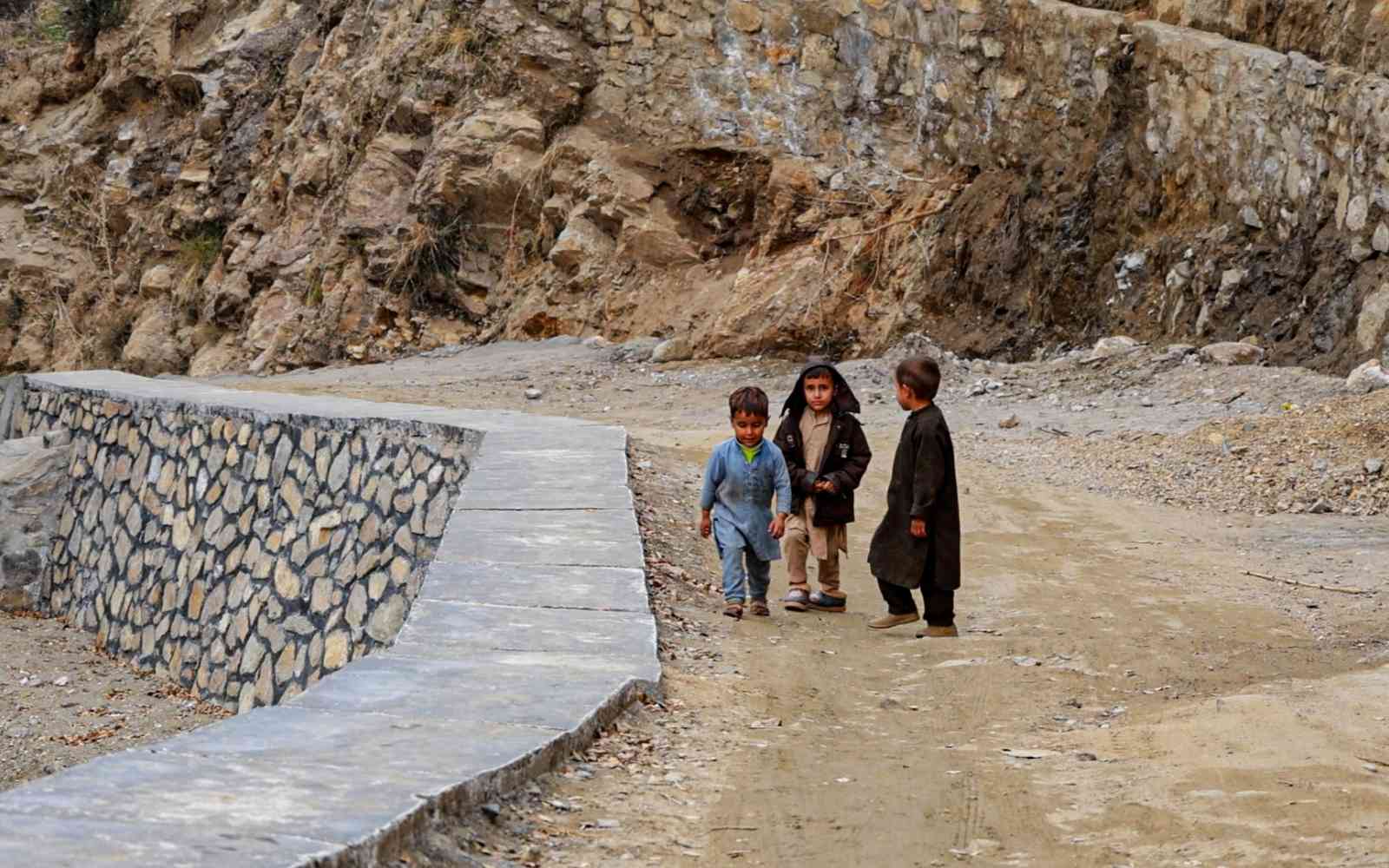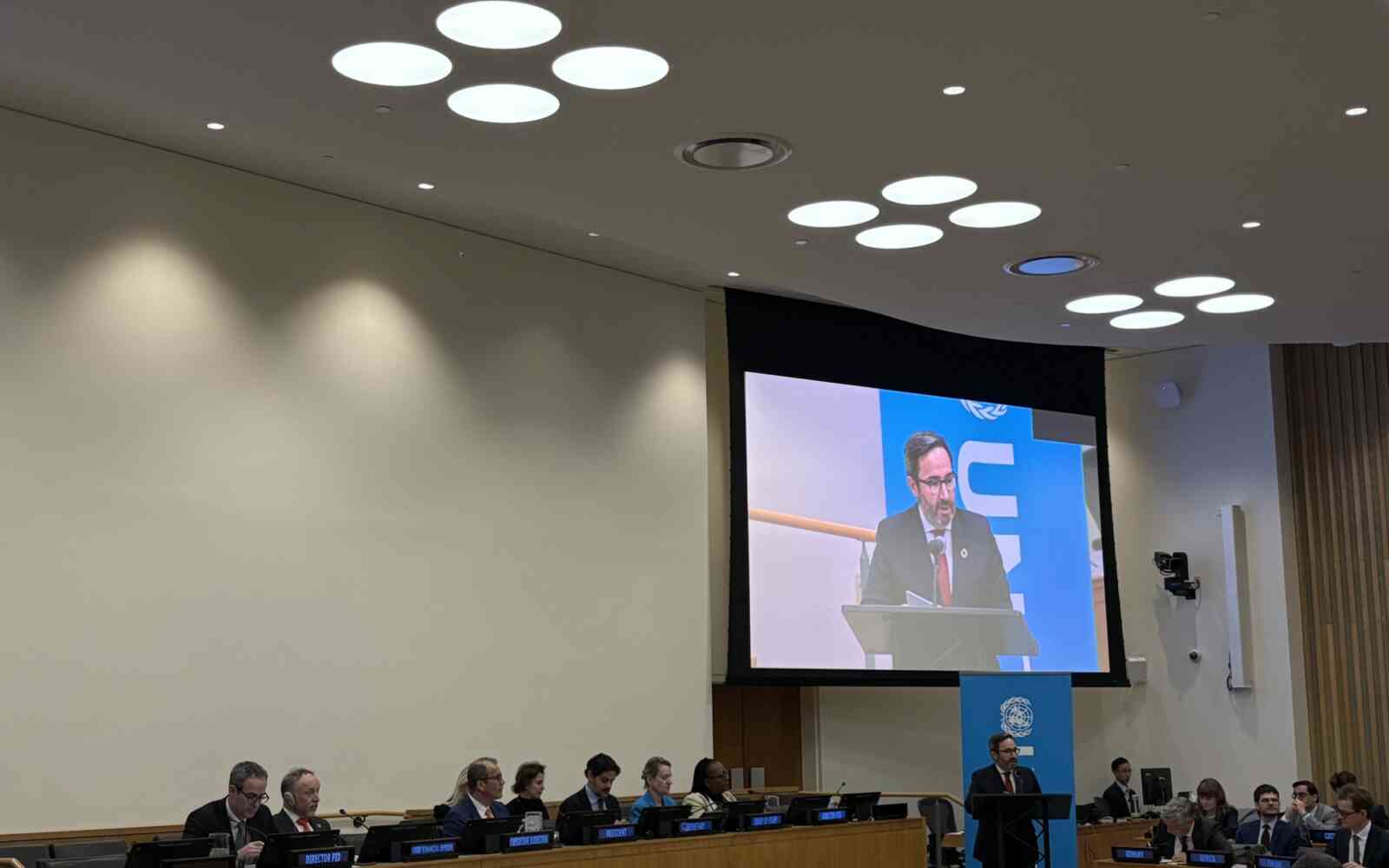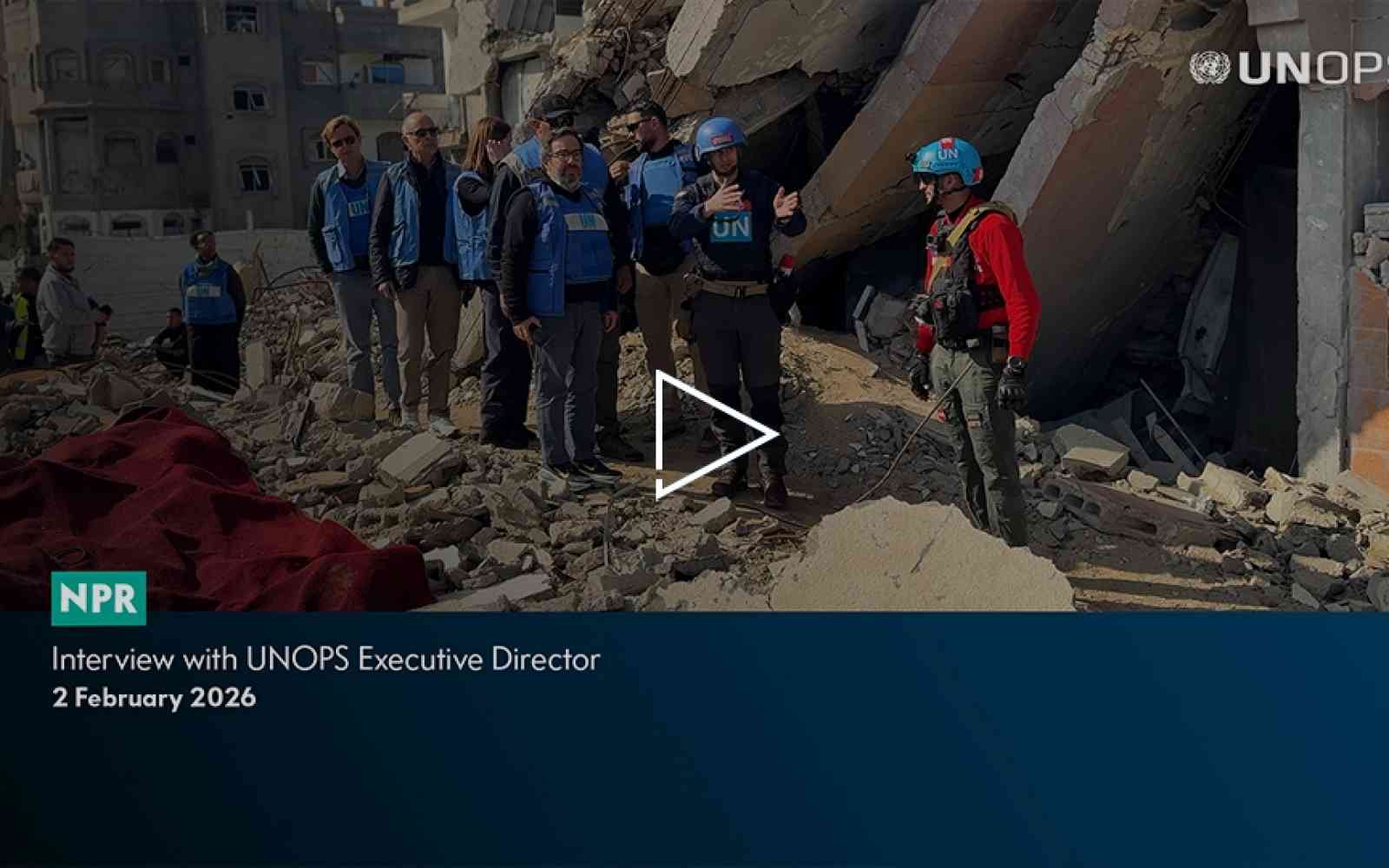The United Nations Office for Project Services (UNOPS)
Conférence internationale sur l’aide européenne au développement après 2015
Opening speech by Grete Faremo, Under-Secretary-General and Executive Director of UNOPS, at the International Conference on European Development Aid Post-2015, Luxembourg, 20 October 2015
[Check against delivery]
The new Global Goals require us to think and act differently than we have in the past. For the sake of our climate. In the name of more equitable and just societies. For mothers and children around the world.
Honourable and Distinguished ladies and gentlemen;
15 years ago, the United Nations General Assembly approved a list of 8 Millennium Development Goals. The goals were highly ambitious but they were fairly narrow in scope.
They were an attempt to deal once and for all with the unfinished business of the 20th century; hunger, infectious diseases, lack of basic education, sanitation and opportunity for all.
The MDGs were the manifestation of a hope for a century of peace and unprecedented opportunity for humankind.
Looking back, the first fifteen years of this century have been anything but peaceful. Manmade and natural disasters, economic downturns and the growing severe effects of climate change have led to a world in greater turmoil than 15 years ago. The sense of opportunity back then has in many parts of the world been replaced by concern, desperation and fear of the future.
I have just returned from the Middle East where I saw first-hand the devastation brought about by the terrible regional conflicts that are tearing nations, communities and families apart.
In the midst of this despair, the adoption of the 17 Sustainable Development Goals in New York last month is all the more important. The new goals remind us of what we, as a collective community of seven billion people, aspire towards. They provide us with hope that together, we can achieve a vision that is greater than the sum of the grinding, daily challenges we face in our respective countries and communities. They retain the spirit of 2000 and reconfirm that this is a century of unprecedented opportunity and excitement for humankind.
The MDGs have largely been a success, although the level of success varies highly among the eight goals. They inspired unprecedented action and raised significant resources to tackle entrenched problems. In particular in health and child survival, the MDGs have succeeded spectacularly.
- Nearly two-thirds of developing countries have achieved gender parity in primary education.
- Maternal and child mortality has fallen by nearly half since 1990, although a lot more still needs to be done.
- And, some 2.6 billion people have gained access to improved drinking water since 1990.
These successes are in large part achieved thanks to donors, such as the European Commission, who pledged $1 billion through the MDG Initiative in 2010 to help speed-up progress.
Yet the MDGs were largely about the challenges of poverty, and the work was structured along the traditional lines of development aid.
The great change the SDGs represent is that they are about global solutions to truly global challenges. The SDGs are not about 'us and them'. They represent a 'global we'. Dealing with poverty is a global challenge. The corrosive social and economic effects of extreme inequality have increasingly become an issue of concern also in rich countries, including within the European Union.
Health, education, equal opportunities, sustainable energy, inclusive economic growth and reduced inequality, resilient infrastructure, the quality of our environment and sustainable consumption: these are all goals that are as relevant for the societies of Europe as for anywhere else in the world.
The new Global Goals require us to think and act differently than we have in the past.
As the UN Secretary-General Bank Ki-moon noted in his remarks at the Sustainable Development Summit:
"The 2030 Agenda compels us to look beyond national boundaries and short-term interests and act in solidarity for the long term. We can no longer afford to think and act in silos."
This is a call to action to development actors around the world, including us gathered here in Luxembourg.
The Sustainable Development Goals provide us with an opportunity – or rather, an imperative – to rethink our concept of development assistance. We both have to change the way we think and talk about its purpose, and about the way aid is used.
Let me start with the purpose.
The SDGs arrive at a time of unprecedented political challenges for development assistance. Many governments are scaling back aid, while others are struggling to achieve – or have abandoned the goal of providing ODA at a level of 0.7 of GDP.
The traditional view of aid – implicit in its name and the language that surrounds it – is that it is about charity, about helping those less fortunate far away, through a share of our collective surplus.
In many ways, it is a very 20th century concept.
Yet, aid can be defined simply as 'investments in countries outside our immediate neighbourhood'. And such investments are more needed today than ever before. Of the numerous reasons why we need to invest in ODA, the flood of migrants and refugees to Europe over recent years is only the most visible and acute.
The SDGs provide the perfect framework to reframe ODA as an essential investment in a collective future. It is no longer about charity; it is about achieving a set of goals we all aspire to. The alternative is a world that will be a very dangerous and Hobbesian place, where no country – regardless of its wealth – can shield itself against turmoil and disaster.
We should consider changing the name of ODA altogether. We should develop a terminology that describes our previous ODA budgets investment in our future, investment in our children, solidarity and sustainability for all.
However, we must change more than the name. We also need to change the role of ODA. The Conference on Financing for Development in Addis Ababa in July made clear that the investment needs to achieve the SDGs are so large that traditional ODA will at best play a minority role. Private capital will have to drive much of this work.
This is already happening. In 2013, Africa received more than $42 billion in development assistance. Meanwhile, it received $57 billion in foreign direct investment.
Domestic and foreign capital is a necessary and promising source for investing in Africa's growth.
Yet, past experience shows that private capital will not solve the world's problems on its own. Aid must be seen as the tool that governments can use to steer, incentivise and encourage private sector investments in sustainable development.
Aid must be used in a smart and catalytic way to support national planning, build solid governance systems and encourage private capital flows. Used smartly, aid can reduce corruption – not drive it. It can be used to reduce risk levels to a point where large private funds can defend investing.
European Union institutions spent $16 billion in net overseas development assistance in 2014.
The EU could use its considerable leverage in development assistance to lead the way in the 2030 agenda.
This means engaging with a wider variety of partners to explore new avenues of cooperation and implementation.
This also means expanding our networks, thinking outside of the box and asking ourselves:
How can we most effectively help those in need?
We cannot do it alone, and with many donor governments pressed for resources, we have a responsibility to look beyond our four walls and seek out new partnerships.
I believe that the United Nations system can play a greater supportive role in this work. UN agencies, funds and organizations, like UNOPS, which I represent, can play a constructive role in bringing the private sector, aid agencies and governments together, preventing corruption and ensuring that aid reaches those who need it most.
The UN family stands in solidarity with refugees around the world.
We have a responsibility to help people in need.
Achieving the Sustainable Development Goals by 2030 will not be easy.
But by working together, with openness to new processes, innovative technologies and with access to a wider array of resources, we can better respond to the world's development and humanitarian challenges.
In 2014, the European Union, alongside the UN and its partners, responded to an unprecedented number of emergencies around the world – in South Sudan, Iraq, the Central African Republic, Yemen as well as Syria.
Last month's EU approval of over 2 billion euros to help tackle the current refugee crisis shows Europe responding to a pressing and urgent need.
But we can't let acute emergencies replace long-term investments in development. Today's crises are nothing more than the fruits of yesterday's unresolved problems. Here, the SDGs can help in making the necessary arguments for long-term strategic investments in peace and stability to a reluctant public.
The UN wants to be a useful partner in this effort.
For this to happen, the United Nations family is working to be "fit for purpose":
Working collaboratively, building on the strengths of its partners and sister organizations, and engaging with partners who complement its good work around the world and being useful to countries in a coordinated and clear manner.
For me, "fit for purpose" also means ensuring a high level of excellence and risk management in our implementation work.
Resilience and local ownership are key themes to sustainable development initiatives.
UN agencies, including my organization – UNOPS ‒ are committed to this new environment of development work.
I speak for the whole UN system when I say that I look forward to working with the European Union on the most effective way to utilize Development Assistance in the midst of these challenging times.
Thank you.











